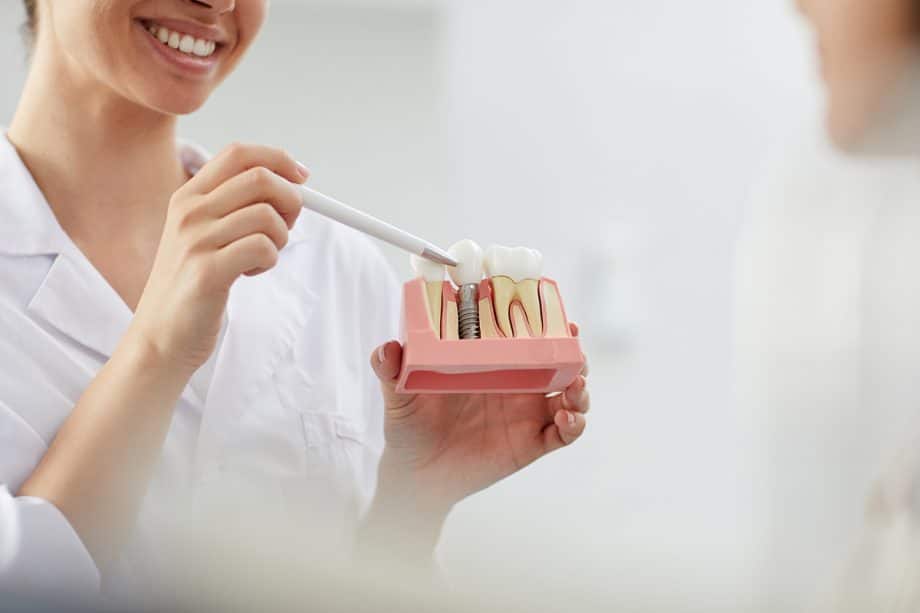Dental implants represent a significant investment for most people, which is why one of the most common questions people have about them is, “How long do dental implants last?” This, of course, is understandable—you want to make sure they’re worth the investment! Answering this question is a little more complicated than you might expect, though; read on to find out why.
Understanding Dental Implants
First, let’s talk about what we mean by the term “dental implants.” In dentistry, dental implant refers to the fixture that is surgically implanted into the jaw, but colloquially, people use the term to refer to the dental implant and the restoration that attaches to it.
The root of your tooth is replaced with the dental implant, and the crown (the portion of the tooth visible above the gumline) is replaced with the restoration. Depending on how many teeth you’re missing, the restoration could be one or more crowns, a bridge, or a fixed or snap-on denture. For traditional dental implants, a piece called an abutment connects the restoration and implant fixture.
All of this matters when we talk about how long dental implants last because the different components involved in an implant-based restoration have different lifespans.
How Long Will Dental Implants Last?
Dental implants are designed to be a permanent replacement for the roots of teeth that have been lost. Your jawbone and dental implants fuse together in a process known as osseointegration, which provides them with the same stability as your natural teeth. Dental implants can last a lifetime with proper care, good oral hygiene, and regular visits to the dentist, and most people with implants never need to have them replaced.
The best way to ensure that your dental implants last for decades to come is to follow the aftercare instructions you’re provided after your procedure. Poor oral hygiene habits, tobacco use, and not going to the dentist for regular preventive care can all lead to dental implant failure.
How Long Do Dental Implant Restorations Last?
Because they are used every single day for eating, the crowns, bridges, and dentures that are attached to dental implants are subjected to more stress and wear than the implants themselves, which means they have a shorter lifespan.
Jaw clenching, teeth grinding, and biting your nails or other non-food objects (like opening packages with your teeth) are all oral habits that can result in damage to your restorations. It's also important to choose a high-quality material for your restoration; lower-quality, inexpensive materials won't appear as natural and are more likely to break. Dr. Roisman provides only strong, durable restorations that are designed to stand the test of time.
A crown, denture, or bridge supported by implants can last 10 to 20 years, but they can last even longer if you practice good oral hygiene habits like brushing for two minutes twice a day, flossing at least once a day, and visiting the dentist every six months for dental cleanings and comprehensive oral evaluations. Although implant-supported restorations cannot get cavities, it's still necessary to brush them well to avoid plaque buildup, which harbors the bacteria that causes gum disease. Gum disease is one of the most common reasons for dental implant failure.
Learn More About Dental Implants
If you're considering dental implants and you’d like to learn more, contact us today at 203-227-6338 to schedule an appointment for a consultation with Dr. Roisman.

